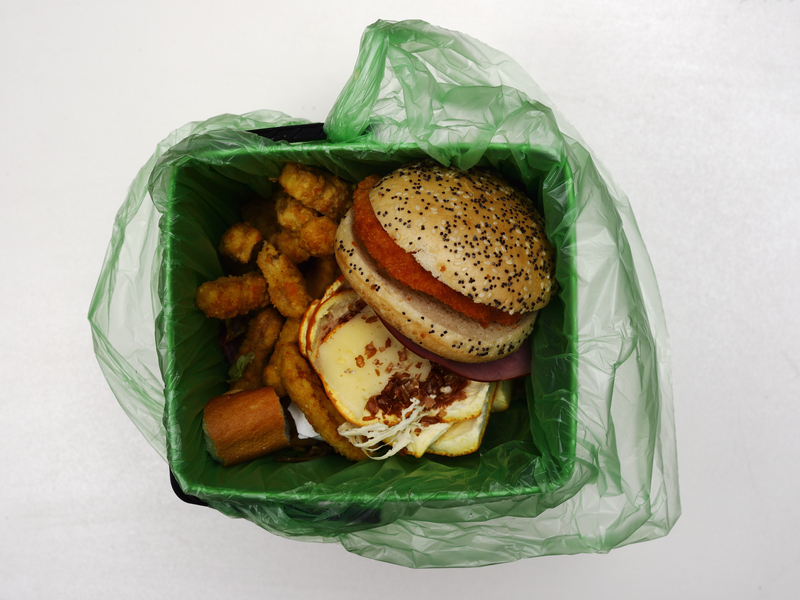Trenton, NJ – We recycle plastic, paper, cardboard, metal and a various host of other items here in New Jersey. We now have to carry armfuls of groceries out of grocery stores due to a plastic bag ban. We even have to drink our 64-ounce mega drinks in large plastic containers with paper straws that are often packaged in plastic wrappers.
Now, New Jersey Democrats want our food scraps. That’s because they want to start recycling food. No doubt, that recycling process will add a third large plastic bin outside your home next to your huge plastic robo can and plastic recycling can. That’s 3.72 million more heavy plastic bins just for houses alone. That doesn’t include restaurants across New Jersey.
That waste will probably be placed in plastic bags inside your home and of course, for sanitary reasons, discarded daily.
“In an attempt to reduce food waste throughout the state, the Senate Environment and Energy Committee today approved legislation sponsored by Senator Richard Codey and Senator Bob Smith, which would require each solid waste management district in the State to develop a strategy to reduce food waste,” the Democrat Caucus of the New Jersey Senate said today.
The bill, S-2730, would require each solid waste management district, by 2030, to implement a strategy for reducing the amount of food waste generated annually by at least 50 percent of the quantity of food waste generated in the year this bill is enacted into law. The strategy would be adopted as an amendment to each district’s solid waste management plan and be subject to the approval of the Department of Environmental Protection.
“Food is a terrible thing to waste. Annually, it is estimated that one-third of all food produced in the world goes to waste, equaling to over a billion tons of fruits, vegetables, meat, dairy, seafood, and grains that are thrown out,” said Senator Codey (D-Essex/Morris). “This amount of food waste is also an environmental concern since, when food is wasted, all the energy and water it took to grow, harvest, transport, and package it are squandered too. Additionally, when food goes to a landfill and rots, it produces methane—a greenhouse gas approximately 28 times more potent than carbon dioxide.”
The bill would also require the Department of Environmental Protection to develop and publish a list of measures that solid waste management districts could utilize to achieve food waste reduction.
“In the last session we were able to pass legislation that required large generators of food waste such as hospitals, prisons, restaurants, and supermarkets to recycle food garbage rather than sending it to incinerators or landfills. This marked an important step towards systematically addressing food waste Statewide, and this bill could continue this work at the regional level,” said Senator Smith (D-Middlesex/Somerset), chair of the Senate Environment Committee.
